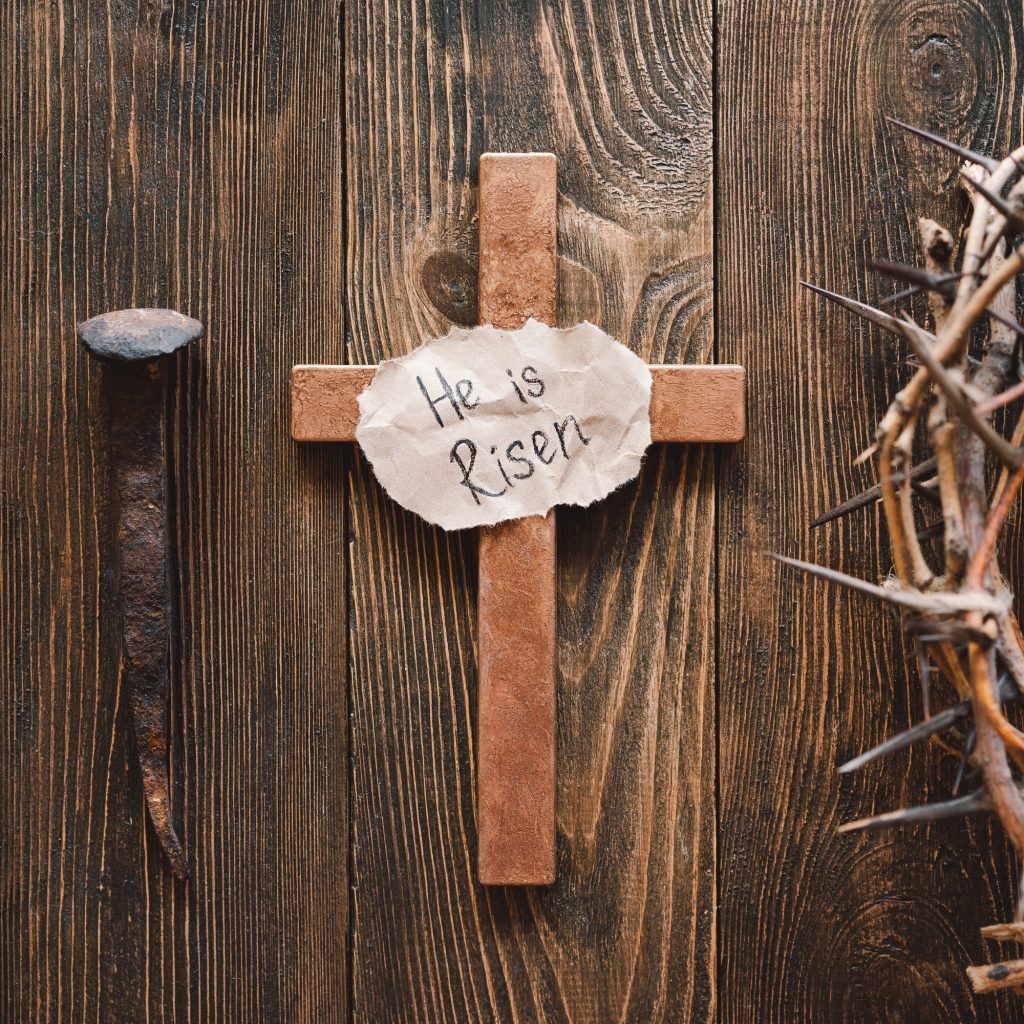THE GOSPEL: GOD’S RESCUE THROUGH JESUS CHRIST
The Divine Dilemma : Justice vs Mercy
God cannot ignore sin—His righteousness demands that wrongdoing be punished. At the same time, He desires to show mercy to those He created. As Psalm 145:17 declares: “The Lord is righteous in all His ways, and holy in all His works.”
This creates a divine dilemma:
- If God judges strictly according to justice alone, then all are condemned—righteous but merciless.
- If He simply pardons all sin without judgment, then He becomes tolerant of evil—merciful but unrighteous.
But humanity is totally sinful and incapable of solving this dilemma (Romans 3:10): “There is none righteous, no, not one.”
And no one can endure the full weight of God’s punishment for sin (Romans 6:23):“The wages of sin is death…”
So how can God judge justly and still show mercy?
God, in His greatness, revealed the solution long before Jesus came. As it is written : “Surely the Lord God will do nothing, but He revealeth His secret unto His servants the prophets.”— Amos 3:7
To judge sin without compromising justice, and to extend mercy without tolerating evil, God sent His Word—Jesus Christ—into the world. He gave His eternal Word to men, in human form, to bear the punishment for sin. Jesus fulfilled both justice (by suffering the penalty for sin) and mercy (by offering forgiveness to all who believe). In Jesus, we see righteous judgment and divine mercy meet at the cross.







God’s Provision : The Sinless Substitute
God sent His eternal Word—Jesus Christ, who is fully God and fully man (John 1:1, 14)—to resolve the problem of sin and separation from Himself. Jesus, the only sinless human, bore the guilt and punishment that sinners rightfully deserve (Isaiah 53:4–5). He suffered death in their place, satisfying the demands of God’s justice (Romans 6:23) and at the same time making a way for mercy.
This sacrifice was not unexpected—it was prophesied centuries in advance, as the Lord revealed through His prophets (Amos 3:7).
“Surely he hath borne our griefs, and carried our sorrows: yet we did esteem him stricken, smitten of God, and afflicted. But he was wounded for our transgressions, he was bruised for our iniquities: the chastisement of our peace was upon him; and with his stripes we are healed.” Isaiah 53:4–5 (KJV)
God foretold this through the prophet Isaiah, hundreds of years before Jesus came into the world. This shows that God had already prepared a way to both judge sin with righteousness and extend mercy through Jesus. God did not send Jesus to ignore evil or turn a blind eye to human wrongdoing. Rather, the punishment that the Law required for sin—God applied it. But knowing that humanity could not bear such punishment, God laid it upon Jesus. He bore it on behalf of mankind.
“There is therefore now no condemnation to them which are in Christ Jesus…” Romans 8:1
This means that anyone who believes in Jesus and follows Him will no longer face condemnation, because Jesus has already taken that punishment upon Himself. God will not judge again what has already been judged in Christ.
Salvation by Faith Alone
No human merit

Good deeds are “filthy rags” (Isaiah 64:6) and cannot offset sin (e.g., a builder using stolen money for charity while causing future deaths).
Let’s take the example of a man who builds houses for people and who has been entrusted with building a school for children. He receives the money to build the school, steals some of that money, and uses the rest to build the school. He ends up building a school whose walls are fragile. Then a heavy rain falls and causes the walls of the school to collapse on the children. Many children died and the school was closed. Problems started arising for the proprietor of the school. They locked him up in prison. He could no longer pay his debts. He could no longer take care of his family either, to the point where his wife left him. And some of their children, abandoned for lack of means, became criminals. The builder who stole the money, however, used a good part of it to help the poor in his family and appeared to be a good man. The good things we think we do are like what this man did.But the Bible says that your good deeds are like filthy rags before a Holy God.
“For God so loved the world, that He gave His only Son, that whoever believes in Him should not perish but have eternal life.”— John 3:16. God sent Jesus Christ not just as a teacher or example—but as the only way to escape the judgment that is coming. He gave Jesus because a Day of Judgment is appointed for all mankind.
You Have a Choice
God will not force anyone to follow Jesus. If someone truly believes they can withstand the eternal fire of judgment alone, they are free to reject Him. But ask yourself honestly:
- Can you endure the fire of God’s judgment on your own?
- Can you pay the price of sin without Christ standing in your place?
If your answer is no, then don’t delay.
Don’t Wait Until It’s Too Late
If you know you cannot bear the weight of eternal judgment, then the only wise decision is to receive and follow Jesus Christ right now. Tomorrow is not promised. “If only I had known…” — Don’t let this be your cry on the other side of eternity.
Only through Christ

Those who trust in Jesus’ sacrifice are forgiven—God "will no longer condemn them" (Romans 8:1).Complete Pardon
